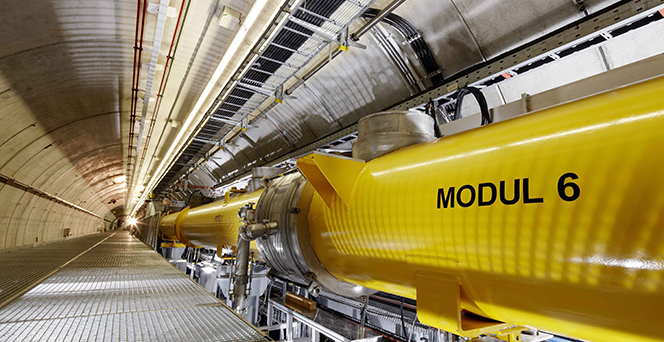URL: https://v1.desy.de/site_www-desy/content/research/facilities__projects/flash2020/Aufgabenuebersichtsplan_V1_201900816_eng.html/@@siteview
Breadcrumb Navigation

FLASH2020+
Upgrade of the free-electron laser FLASH
The free-electron laser FLASH provides scientists from all over the world with ultrashort pulses of high-intensity radiation in the extreme ultraviolet and soft X-ray range. FLASH was the first free-electron laser in the world to achieve such short wavelengths. The facility is being further expanded and optimised as part of the FLASH2020+ project.
DESY's free-electron laser FLASH is a pioneering facility both for the superconducting TESLA accelerator technology and for experimental techniques at X-ray free-electron lasers, the latest generation of X-ray light sources worldwide. At FLASH, important and fundamental experiments have been carried out that make it possible to follow "molecular movies" in the nanocosmos. Accordingly, beam time at FLASH is highly sought after.
To secure FLASH's role as an X-ray laser pioneer and forerunner for innovative technologies in the future, the 300-metre-long facility is being extensively upgraded as part of the FLASH2020+ project. One goal is to enable fully parallel and independent operation of the two undulator sections for light generation, thus making the coveted X-ray laser light available to as many users as possible for their research. To this end, all undulators will be equipped with changeable gaps and can then deliver X-ray light pulses with variable polarisation. The possibility of adjusting the wavelength of the X-ray light at both beamlines by means of the undulator gap will increase the time available for user experiments by almost half.
In addition, two of the superconducting accelerator modules have already been replaced to increase the electron beam energy from 1.25 to 1.35 giga electronvolts (GeV). This increase in energy allows even shorter wavelengths, coming even closer to the wavelengths of the big X-ray laser European XFEL and enabling new research, especially on biological issues. The gradual expansion of FLASH began in 2020. The new FLASH2020+ facility will then offer researchers outstanding experimental conditions for more than 15 years.


